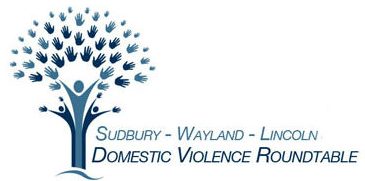December 16 email from Dr. Stein:
Over the weekend, as the news coverage of the Newtown tragedy fills the airways, our principals and other administrators have been discussing how we can best prepare to welcome our students back to school tomorrow. Counselors have already worked to identify any children who, for whatever reason, might be emotionally vulnerable under these circumstances. Early morning staff meetings are scheduled at the elementary schools. Principals at all levels have been in touch with their faculty.
Most importantly, we want students to feel the safety of a calm and structured school environment. In this context, school routines are very comforting. Our intent is to normalize the day while being sensitive to the impact of Friday’s news and alert to our students’ psychological needs. Classes and activities will go on as planned. If individual students need a forum to ask questions or discuss feelings, our counselors and teachers will certainly be ready and responsive.
A number of parents have emailed me regarding security in our schools. We actually had begun discussions about this very matter at The Children’s Way and at our elementary schools. Now, we’ll need to review and perhaps accelerate these plans — as well as take a second look at our secondary schools. This will become a matter for discussion with the School Committee over the coming weeks.
I’ve received many links to helpful articles, four of which I’ve copied below. They each present thoughtful approaches to helping children cope with tragedy. (I’ve also included a link to a meeting on this topic at Jeff’s Place in Framingham this evening.)
I’m always reminded, usually by the actions of students themselves, that our children are incredibly resilient. This is especially true when they are in the hands — as they are — of a caring and resilient community.
Please don’t hesitate to call the school if you have any concerns regarding your child about which you want us to know.
Sincerely,
Paul Stein
Superintendent
A National Tragedy: Helping Children Cope:
http://www.nasponline.org/resources/crisis_safety/terror_general.aspx
Coping with Crisis — Helping Children With Special Needs:
http://www.nasponline.org/resources/crisis_safety/specpop_general.aspx
Tips for Talking With and Helping Children and Youth Cope After a Disaster or Traumatic Event, A GUIDE FOR PARENTS, CAREGIVERS, AND TEACHERS:
http://store.samhsa.gov/shin/content/SMA12-4732/SMA12-4732.pdf
Talking with Kids About News from PBS:
http://to.pbs.org/SWByvJ
Notice of December 16, 7PM meeting at Jeff’s Place, “How to Talk With Your Children About Tragedy”
http://www.jeffsplacemetrowest.org/educational-community-gathering-how-to-talk-with-your-children-about-tragedy-sunday-dec-16-2012
December 14 email from Dr. Stein:
Dear Parents and Community Members,
I’ve forwarded below a message that offers some guidance regarding the Newtown shootings, written by Robert Evans, Ed.D. and Mark Kline, Psy.D. from The Human Relations Service.
— Paul Stein, Superintendent
Helping Children Cope with The Newtown Shootings
Unbelievably, there has been yet another school shooting, this time with awful carnage, 20 students and 6 teachers dead. And barely two hours from Boston. We have had too many of these in America. And when it happens not just again but so nearby, our sense of fragility looms even larger. We’re reminded that none of us can entirely guarantee our own safety or that of our children, our teachers, our colleagues and friends.
There is no technology or template for coping with this kind of event. We feel shock and disbelief, sorrow for the victims, anger at its unfairness, despair that guns remain so available to those who commit these atrocities. And most of us think immediately about how to be helpful to our children.
This, too, can seem difficult. We worry about saying too much or too little, about not having enough information, about saying the wrong thing. Fortunately, the things that have been helpful in past tragedies that have struck our schools and communities are likely to be helpful again. Though there is no perfect approach, these four points that can help when talking with children.
Don’t over-assume what the events means to them. It is common for an adult to feel, “If I’m this upset, they must be even more so.” But this is by no means always true. Students react differently depending on their closeness to the situation, their own personalities, and so on. Some may be deeply moved, others less so. Some may have many questions, others fewer. Not all will be intensely affected. Showing little reaction does not automatically mean a student is hiding or denying his or her feelings. At the same time, a few students who have little immediate reaction may become upset later on, even in a way that doesn’t make sense to them. There is no universal timetable.
Children and adolescents are remarkably resilient. They may become quite upset, but given a chance to express what they feel, most usually resume their normal lives-and often do so more rapidly than we adults. There is reason to worry about students who show sustained-not temporary-changes in their mood and behavior. In such cases, it is good to consult a school counselor or other professional. But most students do not benefit from extensive, probing questioning about their reactions. They do profit from simple, direct information and from parents and teachers being available to respond to their questions and to listen when they themselves want to talk.
If you receive difficult questions it can be useful to understand these before answering them. Often a question is spurred by a feeling. Rather than plunging into an immediate answer, it can be helpful to learn what motivates the question by asking, “What made you think of that?” or “Can you tell me what you were thinking about?” Once you know the source of the question, it is easier to answer effectively.
There may be questions you cannot answer, which can make you feel inadequate. But all of us are typically more comforted by straight talk than by false assurances. Rather than inventing a response, it can be much more helpful to say, “I don’t know,” and to ask, “What have you heard?” or, “Did you have an idea about that?” And don’t worry if, in responding, you become emotional a time or two. It is alright for students to know that adults are moved by losses.
Above all, coping with such an awful event is not primarily a matter of technique, not something best handled by a particular set of tactics that deviate sharply from one’s familiar patterns of communication. The regular routines of both school and family life are, all by themselves, a source of comforting continuity and assurance. Adults will rarely go wrong by relying on what is most basic between them and their children-caring and connection. At these times, your presence-your simply being with them, their knowing that you are available-can be just what they need.
Drs. Evans and Kline are psychologists are, respectively, the Executive Director and Clinical Director of The Human Relations Service (HRS), Wayland’s community mental health agency. Residents with questions can reach HRS at 781-235-4950.










